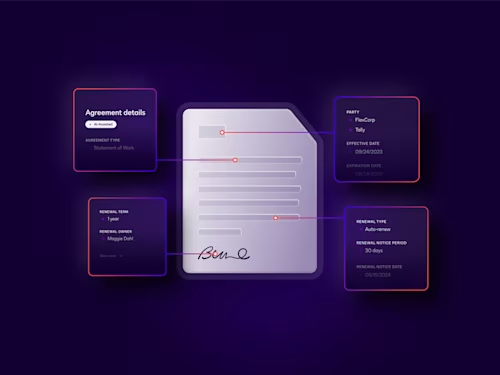
6 Wealth Management Trends to Watch in 2024
Maximizing assets under management and catering to the evolving needs of investors will be significant priorities throughout 2024.
Table of contents

Shaped by persistent inflation, stock market volatility, high interest rates and geopolitical tensions, 2023 was a dynamic and volatile year for wealth and asset managers. As a result of this volatility, 32% of wealth managers saw a decline in revenue, and their concerns about the economy will likely persist into 2024. The same holds true for asset managers, 41% of whom also anticipate revenue declining in 2024.
These sentiments are reflected in the attitudes of the average retail investors today, who are growing increasingly concerned about their financial condition: 62% of investors are worried about their financial future, a marked jump from 46% the prior year. Accordingly, these investors are expecting more scaffolding and services from their advisors, especially with an election year injecting more short-term volatility into the mix.
Maximizing assets under management and catering to the evolving needs of investors will be significant priorities throughout 2024. Looking forward, 80% of wealth managers see technology as a “critical” or “very important” enabler to achieving this growth. Wealth managers should look to strategically deploy technology—while keeping the following trends and considerations in mind to help shape where and how they invest.
1. Client experience is critical to capturing the next class of investors
According to a recent study, the top three business objectives of wealth managers in 2024 are to add more clients (64%), deepen relationships (48%) and improve the client experience (46%).
These priorities make sense given the great wealth transfer that’s well underway, with $72.6 trillion in assets projected to transfer from baby boomers to millennials by 2045. This next generation of investors behaves differently and has a new set of expectations, which is why 80% of millennial heirs will seek a new advisor once they’ve inherited their parents’ wealth, with digital and mobile convenience being a chief consideration in their choice.
To win in today’s market, wealth managers must deliver digital client experiences that are seamless, convenient and personalized. This is often easier said than done when the new client onboarding process is saddled with complex documentation, ranging from investment management agreements and Form ADV disclosures to custodian account opening paperwork.
Firms must simplify the onboarding experience and seek to provide new clients with a single-envelope experience for required agreements and forms. They must also maintain that standard through every stage of the client lifecycle, including for common interactions like changing beneficiaries and transferring funds.
2. Wealth managers should expand their offerings to stand out from the pack
Satisfying this new class of investors requires wealth managers to transform their digital experiences for core services and broaden the horizons of the overall services they offer beyond investment advice.
Wealth managers have ample opportunity to add value to the relationship in areas including estate planning, retirement planning, tax advice, loan and credit management, life insurance and health planning. Indeed, 31% of firms plan to add tax and estate planning to their practice in 2024. Another valuable opportunity lies in retirement planning, as 63% of affluent investors cite saving for retirement as key to their financial goals.
As wealth managers widen their aperture of services, they should invest in technology and digital experiences that can scale in lockstep across different areas of their business to drive consistent experiences for their clients.
3. Firms must keep pace with advisors on the move
An evolving investor class is not the only reason why money is on the move—advisors are increasingly leaving traditional wirehouses to pursue the independent channel, more RIAs are consolidating via M&A, and long-time advisors are retiring or leaving the industry in droves.
Many of today’s advisors seek greater autonomy in how they operate and see the independent channel as an attractive move. A new report from Fidelity shows that approximately one in six advisors has switched from a corporate firm to go independent in the past five years. This trend is slated to continue as 69% of respondents to a recent Arizent survey expect more advisors to transition to an independent model.
At the same time, registered independent advisors (RIAs) are consolidating at a rapid clip to reduce costs, achieve economies of scale and optimize their talent pool and services. Over the past three years, asset and wealth management merger volume has remained steady at an average of more than 300 deals per year, peaking at a historic high of 316 deals in 2022.
Against this backdrop, there are 100,000 advisors controlling $10 trillion in assets who are slated to retire in the next ten years. These advisors must think critically about their business succession plans as they approach their exits.
As books of business migrate to new owners, firms should consider how to use batch processing to transition their clients most efficiently. This will allow them to scale effectively while maintaining high service standards.
Moreover, firms looking to capture and retain advisor talent should ensure they support their teams with a modern, tech-enabled environment that allows them to devote time to maximizing the value of their client relationships and less time to clerical work.
4. Asset allocations and strategies are shifting
According to a survey of investors by Bloomberg, 57% plan to adjust their asset allocations in 2024, with 31% opting to move more funds into fixed income and 26% into equities.
Retail investors are expanding into new terrain, as evidenced by the growth in direct indexing and the increasing accessibility of alternative investments through vehicles like liquid alternative mutual funds, exchange-traded funds (ETFs) and publicly traded real estate investment trusts (REITS). Additionally, the U.S. Securities and Exchange Commission (SEC) recently approved 11 new bitcoin ETFs for the first time, allowing retail investors to invest in this volatile asset class without directly holding it through a crypto exchange.
On the asset management side, asset managers are eyeing private credit, private equity and hedge funds as the next attractive opportunities in alternative investments.
The maturation of the alternative investment markets holds several implications for asset managers and advisors, as processes will need to keep pace with more complex disclosure, tax reporting and regulatory requirements. With certain types of products, required reporting may include lengthy Private Placement Memorandums that must be delivered to investors in a timely and memorialized manner. Advisors will also need to ensure they can explain these unconventional investments to their retail investors in clear, understandable language and explore the use of summarization tools that can help.
5. Mitigating security and regulatory risks remains a top priority
Today, wealth and asset management firms are navigating a riskier cyber landscape than in years past. Accordingly, the SEC implemented a series of new cyber-incident reporting and governance rules in July 2023, with compliance deadlines for small reporting companies (SRCs) and non-SRCs following in December 2023 and June 2024. These moves come at a time when investors are growing increasingly concerned about data security, with 66% of the general population expressing worry about the security of financial data, including 73% of affluent investors. The new rules require firms to detail their processes for identifying cybersecurity threats and incidents, and to report material incidents within four business days of being deemed material. In addition to cybersecurity, the SEC has continued to focus intensively on recordkeeping and tamping down on off-channel communications, with 21 firms fined in 2023 for failure to properly maintain and preserve electronic communications.
In this evolving digital environment, firms should ensure they have the right technology and practices in place to safeguard client data and their systems from attacks while ensuring all communications—including those about agreements—are documented properly and disseminated via proper channels.
6. Advances in AI and data are accelerating transformation possibilities
Wealth management firms have made strides in digitizing their processes in recent years, but there’s still work to be done. The lack of integrated technology workflows is the top pain point for advisors. The leading technology challenges faced by wealth managers include keeping pace with changes and managing their technology stack (75%), integrating technology components (73%) and the cost of deployment (67%).
To address these concerns, 52% of respondents plan to increase tech spending and invest concertedly in cloud services. Indeed, wealth firms that better connect the dots between workflow steps and streamline data transfer across systems and paper can unlock tremendous efficiency gains while mitigating risks of Not-In-Good-Order (NIGO) issues.
Amidst this investment in technology, AI is unsurprisingly surging as a key area of interest, with 84% of advisors identifying valuable benefits in how it can automate front and back-office tasks.
The applications of AI are extensive, and wealth firms are already starting to explore personalizing marketing communications and informing investment strategies. AI also unlocks some powerful possibilities in agreements and contracts—such as making complex legalese more accessible via concise summarization and promoting visibility and easy surfacing of terms and obligations within investor contracts. As this technology becomes more sophisticated, firms can think more expansively about new use cases and ways of accelerating their business.
Modernize your wealth management practice for today’s investor
Today’s wealth and asset management firms operate in a dynamic environment marked by a new breed of tech-savvy investors, increasing security and compliance challenges and rapid movement of assets across asset classes and new businesses. With the industry landscape shifting, firms must develop superior processes and invest in new technology to meet the needs of their clients.
Docusign empowers wealth management firms to streamline their agreement process, enabling more efficient operations, enhanced client and advisor experiences, and improved security and compliance.
To begin optimizing your wealth management practice, download our Wealth Management Guide to Digitization and read our blog, Implementing eSignature to Modernize Wealth Management.

Manas Baba is a product marketing manager for the financial services industry at Docusign.
Related posts
Docusign IAM is the agreement platform your business needs


